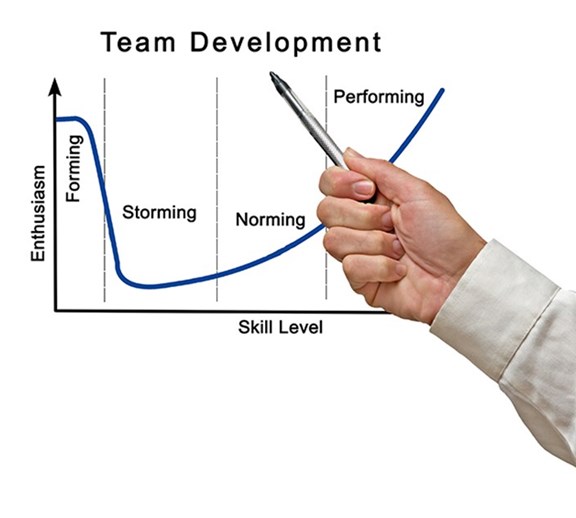Engaging and motivating employees in the WFH era
Written by: David Litteken
(View Author Bio)
At BI WORLDWIDE, we test the rules of engagement year after year. Following a tumultuous year, with global changes to the working environment, we have adjusted the rules to promote the key outcomes that every company wants from their employees: commitment, performance, and inspiration.
Scroll Down
Remote working, telecommuting, working from home (WFH). Whatever you call it, what was once a flexible arrangement to improve work-life balance has now become the "workplace" norm.
We can all understand the benefits of occasionally working from home. When employees have the freedom to throw on their PJs and work from their couch instead of coming into the office, it helps them to rest and recharge - motivating them and thus improving productivity.
But what happens when this arrangement isn't just for a day or two anymore?
Working from home has its benefits; but, if managed ineffectively, it can also hamper internal communications and create distance between employees and their supervisors. As business and team leaders, how can you continue to promote team cohesiveness, engage employees, reward them for good work done, and recognise the value they add to your organisation?
To start, let's look at the new rules on WFH employee engagement.
1. Make it personal
To be motivated, inspired and engaged, employees need to feel assured that their leaders understand their career needs and goals. Every individual is unique, so how does a leader get to know each of his team members in an intimate way?
If WFH is making it hard to set up face-to-face meetings, try holding regular 1-to-1 video calls instead. Switch on your camera and have candid conversations. Really get to know your team — their aspirations, strengths and weaknesses. This will allow you to find the best ways to reach out to them.
2. Make money a non-issue
Employees need to know that their financial needs are being taken care of, especially amid this pandemic recession. With a decentralised workforce, it may be harder to facilitate such conversations, but it remains necessary. To encourage your employees, have higher management regularly share how the company is doing financially, and update everyone on matters to do with salary reviews and/or adjustments. Managers must lead the communication, and not wait for the employees to worry before taking action. You can hold town hall meetings through video calls, or send regular email updates.
Additionally, employee rewards need not always be in dollars and cents. Find new and exciting ways to give incentives through an employee rewards marketplace, be it in the form of concert tickets, a gourmet dining experience, or a staycation.
3. Help them thrive
As leaders, you must set your employees up for success and help them thrive by taking care of their holistic wellbeing. In today’s context, WFH means having to juggle both personal and professional commitments simultaneously. It's keeping the children fed and the household clean while attending meetings at home, all while a global pandemic is wreaking havoc outside. During your regular 1-to-1 calls, remember to ask how your employees are coping, and how you can help them do better.
4. Realise their potential
It pays to nurture your worker bees. Employees are invigorated and motivated when handed the right tools and opportunities to work towards their aspirations — and the company benefits from this burst of creativity and productivity.
Nurturing talents may have been easier back when spontaneous interaction was present in the physical workspace, but now that everyone is working at home, as leaders, you need to actively seek out opportunities for your team.
5. Foster belonging
The sense of belonging and community is crucial, especially in the workplace. But how do you unite your workers when everyone is working alone most of the time? It's much harder for employees to build a culture and form meaningful connections without an office kitchen to snack in, after-work drinks, lunchtime sport, or other team bonding activities to look forward to.
Try to continue encouraging such interactions as much as you can. Hold virtual birthday surprises and organise monthly video get-togethers. Set up systems so you don't forget in the busyness of things, and create memorable experiences for your employees to foster a strong sense of belonging.
6. Be boldly transparent
It may sound counterintuitive, but open communication is more important than ever. Virtual meetings and the lack of face-to-face interactions may make it harder for some employees to speak up, which is not ideal. Bright ideas can come from any level, so make sure to encourage sharing. Ask for feedback and opinions, and listen with an open mind.
7. Give it meaning
Being away from their teammates, it's easy for employees to lose sight of what inspires and motivates them to perform their best. The last thing you want is for employees to think of their jobs as a means to an end, in a transactional "do work, get paid" way. When addressing your team, remember to reinforce the purpose of their tasks and highlight the larger impact they have made on the company and even customers.
8. See their future
Your top talents may be with you today, but how do you retain them? For employees to want to stay, they must be able to see a future with the company.
Telecommuting or not, good managers must work with their members to build a roadmap for progress and growth. Again, it's easy to lose track when everyone is physically separated, so make a note to keep this conversation going during your regular catchups.
9. Magnify their success
These are unprecedented times, and everyone is working extra hard to stay productive and efficient while at home. As such, it's especially important to acknowledge and recognise when good work gets done. This is positive reinforcement that will motivate your talents to keep it up.
Celebrating victories in the day-to-day communicates to your employees that you don't want them to just work hard for the company — they, too, deserve a break. During those times, encourage and allow them to play hard and celebrate well.
10. Unite them
Without bonding opportunities like lunch breaks and huddles, fostering friendships and having a close-knit team may prove more challenging. To facilitate team bonding, create more opportunities for teamwork and collaboration, and encourage a non-competitive environment where everyone has their time to shine. What you want is a team who is always happy to help out, collaborate, and have each other's backs.
11. Let them lead
We mentioned earlier that open communication is important, but in addition to having a safe space to share their thoughts, employees also appreciate when their ideas are taken seriously and have the potential to turn into actionable strategies for the company. Should the opportunity arise, let them take the lead. Trust is empowering.
12. Challenge them
All the above measures have been about listening and providing support to employees. But there's a delicate balance — success isn't the result of cushy conditions and spoonfeeding. Continue stretching your best employees to keep them engaged and motivated, and watch as they overcome new challenges and grow. This will enable your staff members to build up their resilience levels.
Want to know more? Contact our team to find out how the new rules of engagement can be adapted to suit your "workplace" of the future.
Redefine how you define employee engagement.

















